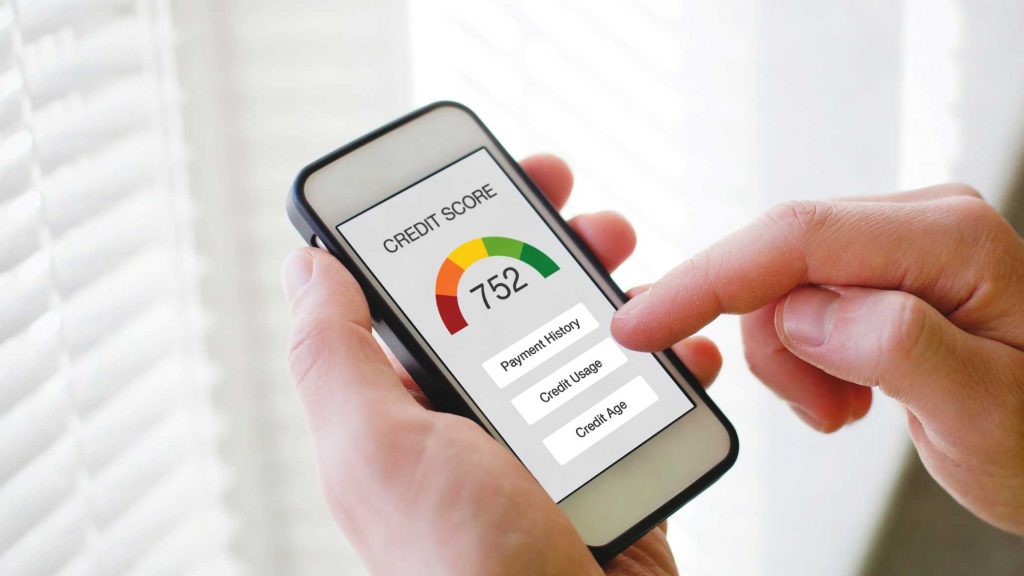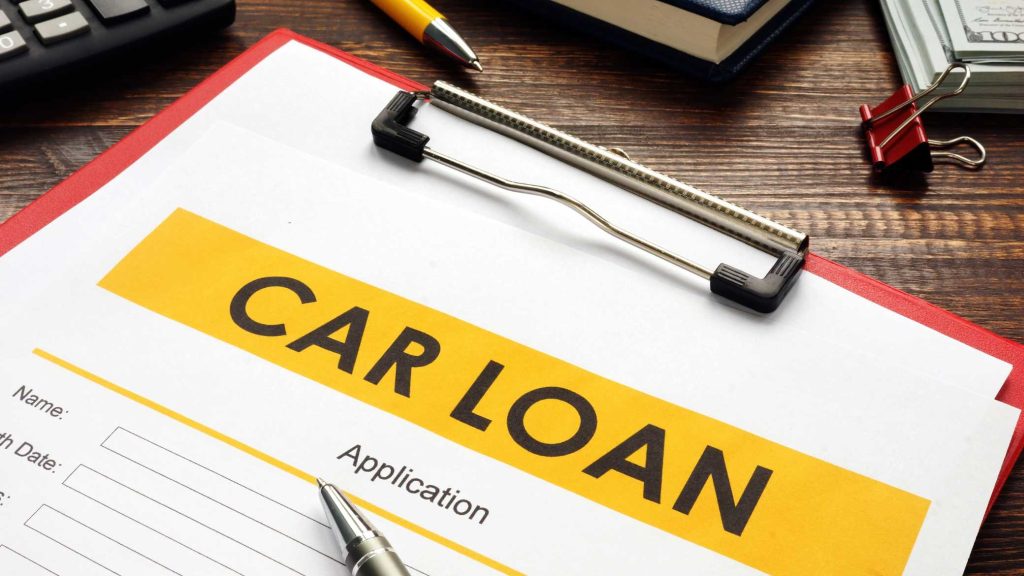How to Improve Your Credit Score for a Car Loan ? : Comprehensive Guide 2025
Credit Score for a Car Loan : A strong credit score is one of the most important factors when applying for a car loan. Lenders use your credit score to determine your ability to repay the loan and assess the interest rate they will offer you. A higher credit score can help you secure better loan terms, saving you money over the life of the loan.
On the other hand, a low credit score may result in higher interest rates or even rejection of your car loan application. If you are planning to purchase a car and need to improve your credit score, it is essential to understand the factors affecting your score and the steps you can take to improve it.
Table of Contents
This comprehensive guide will walk you through the key steps to improving your credit score to increase your chances of getting approved for a car loan with favorable terms. Whether you have excellent credit, are working to improve a fair credit score, or need to rebuild your credit, this guide will provide actionable tips for every stage.
Understanding Credit Scores and Their Importance

Before delving into the ways to improve your credit score, it’s important to understand what a credit score is and how it’s calculated. Credit scores are numerical representations of your creditworthiness, which lenders use to assess the likelihood that you will repay a loan. The score ranges from 300 to 850, with higher scores indicating lower risk for lenders.
Here’s a breakdown of how credit scores are generally classified:
- Excellent (750 and above): Low risk; qualifies for the best loan rates.
- Good (700 to 749): Low to moderate risk; qualifies for favorable loan rates.
- Fair (650 to 699): Moderate risk; may qualify for loans with higher interest rates.
- Poor (600 to 649): High risk; may struggle to qualify for a car loan or may face very high interest rates.
- Very Poor (below 600): Very high risk; may not qualify for a car loan without a cosigner or substantial down payment.
Also Read : PMMY Scheme : Get up to 10 lakhs Without Collateral : Start Your Own Business
Credit scores are primarily calculated using the following factors:
- Payment History (35%): This is the most significant factor, including whether you’ve paid your bills on time, and any late payments or defaults.
- Credit Utilization (30%): This refers to the percentage of your available credit that you’re using. A higher credit utilization ratio can indicate a higher risk.
- Length of Credit History (15%): The longer your credit history, the better, as it shows lenders how well you’ve managed credit over time.
- Types of Credit (10%): Having a mix of credit types (credit cards, mortgages, installment loans) can be favorable.
- New Credit Inquiries (10%): Each time you apply for credit, it generates a hard inquiry, which can slightly lower your score temporarily.
Now that we understand the components of a credit score, let’s explore actionable steps to improve your credit score for a car loan.
1. Check Your Credit Report Regularly
The first step to improving your credit score is to understand where you stand. Obtain a copy of your credit report from all three major credit bureaus—Equifax, Experian, and TransUnion. You’re entitled to one free credit report per year from each bureau, and you can request these reports via the official Annual Credit Report website (annualcreditreport.com).
Review your credit reports thoroughly to ensure there are no errors or inaccuracies. Common mistakes include incorrect personal information, accounts that don’t belong to you, or outdated balances. Dispute any inaccuracies with the credit bureau to have them corrected. Correcting errors on your credit report can boost your score quickly.
2. Make Timely Payments
Your payment history makes up 35% of your credit score, making it the most important factor in determining your creditworthiness. Late payments, especially those that are 30 or more days past due, can have a significant negative impact on your score.
If you’re behind on any payments, focus on bringing those accounts current as soon as possible. Set up automatic payments or reminders to ensure that you never miss a payment again. Additionally, try to pay off any past-due accounts and bring them to a current status. This will demonstrate to lenders that you’re a responsible borrower.
If you’re anticipating trouble paying your bills, contact your creditors to discuss repayment options or extensions. Many creditors are willing to work with you to create a payment plan if you’re facing financial difficulties.
3. Reduce Credit Card Balances
Credit utilization (the percentage of your available credit that you’re using) plays a crucial role in determining your credit score. If your credit card balances are high relative to your credit limit, your credit score may suffer. Lenders prefer to see that you’re using less than 30% of your available credit.
For example, if you have a credit limit of $10,000, aim to carry a balance of no more than $3,000. If your current balance is higher than this, focus on paying it down as quickly as possible. Reducing credit card debt not only helps improve your credit utilization but also reduces the amount of interest you’re paying, freeing up funds for other financial priorities.
You can reduce your credit card balances by:
- Paying more than the minimum payment each month
- Transferring high-interest debt to a lower-interest credit card or personal loan
- Using any extra funds or bonuses to pay down debt
4. Avoid Opening New Credit Accounts
When you apply for a car loan, your credit score may temporarily dip due to a hard inquiry. However, multiple inquiries over a short period can signal to lenders that you’re in financial distress or taking on more debt than you can handle. Too many inquiries can negatively impact your credit score.
Additionally, avoid opening new credit accounts in the months leading up to your car loan application. Each new account lowers your average account age, which can impact your score. If you’re planning to purchase a car in the near future, hold off on applying for new credit cards or loans.
5. Keep Old Accounts Open

The length of your credit history accounts for 15% of your credit score, so maintaining older accounts can positively impact your score. If you have old credit cards or lines of credit that you don’t use often, consider keeping them open (even if you don’t actively use them). Closing old accounts reduces your available credit, which can increase your credit utilization ratio and lower your score.
However, be mindful of annual fees on old accounts. If an old account is costing you money in fees, you may want to consider closing it after you’ve improved your credit score.
6. Consider Debt Consolidation or Refinancing
If you have multiple debts with high interest rates, consolidating your debts into a single loan or refinancing existing loans can be an effective strategy to improve your credit score. Debt consolidation involves combining multiple debts into one loan with a lower interest rate, simplifying your payments and potentially reducing your credit utilization.
Refinancing your existing car loan, student loans, or credit cards could also lower your interest rates, allowing you to pay down debt faster. Lowering your interest rates will make your monthly payments more manageable, enabling you to reduce your overall debt and improve your credit score over time.
7. Settle Any Past-Due Accounts

If you have any accounts in collections, it’s important to resolve them. While settling a debt with a collection agency won’t immediately boost your score, it will show that you’ve taken responsibility for the debt and made efforts to resolve it. Some lenders may be willing to overlook settled accounts in collections if you’ve since demonstrated good financial behavior.
In some cases, you may be able to negotiate a “pay for delete” agreement with the creditor, where they agree to remove the account from your credit report upon payment.
8. Utilize Credit-Building Tools
If you have a limited credit history, consider using credit-building tools to improve your score. Secured credit cards, credit-builder loans, and becoming an authorized user on someone else’s credit card are great ways to establish or rebuild credit.
A secured credit card requires a deposit that serves as your credit limit, while a credit-builder loan involves borrowing a small amount and paying it back over time. These options help you build a positive payment history, which can boost your credit score.
9. Monitor Your Credit Regularly
Lastly, once you’ve implemented these strategies, it’s important to monitor your credit regularly to track your progress. Many credit monitoring services are available for free or at a low cost, providing you with ongoing access to your credit score and report. Monitoring your credit ensures that you can quickly address any issues or inaccuracies that may arise.
Credit Score for a Car Loan – Conclusion :

Improving your credit score takes time and effort, but it’s one of the most powerful ways to secure a favorable car loan.
Buy Now : Fibonacci Trading Master Class
By following the steps outlined above—checking your credit report, making timely payments, reducing credit card balances, avoiding new credit inquiries, and leveraging credit-building tools—you can gradually increase your credit score. A higher credit score will not only help you secure a car loan with a lower interest rate but will also open doors to better financial opportunities in the future.
Remember, the process of improving your credit score is gradual, so patience and persistence are key. By being proactive and following these strategies, you’ll be on your way to improving your credit score and securing the best possible car loan.
Keywords : Credit Score for a Car Loan – Credit Score for a Car Loan 2025 , Credit Score for a Car Loan in india – Credit Score for a Car Loan in kerala 2025



